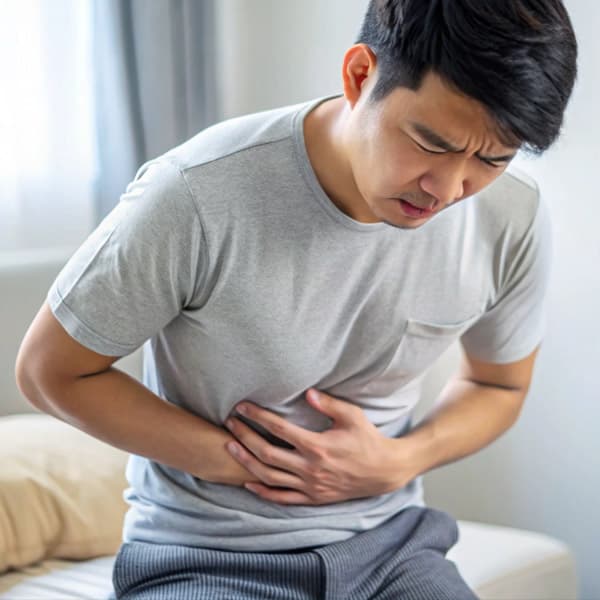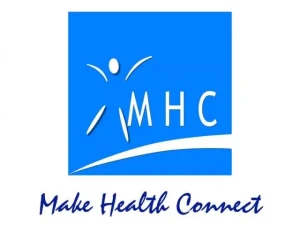Colorectal Cancer
Colorectal cancer is a major health issue in Singapore, but it is also one of the most preventable cancers. Early detection through regular screening can stop cancer before it even starts. Learn more about the symptoms, causes, and how proactive screening can safeguard your health.
Richmond Gastroenterology Centre
Dr. John Hsiang
MBChB (NZ), FRACP (Australasia), MD (Doctorate), FRCP (Edinburgh), FAMS (Gastro)
Dr. John Hsiang is a distinguished gastroenterologist in Singapore with extensive training and experience in digestive health. He obtained his Fellowship of the Royal Australasian College of Physicians in Gastroenterology in 2012 and holds a PhD in viral hepatitis and fatty liver disease research.
He provides care for a broad range of digestive and liver concerns, combining thorough evaluation with tailored management to support patients’ long-term well-being.
Dr Hsiang is skilled in performing gastroscopy (upper endoscopy) and colonoscopy to investigate symptoms, detect stomach and colon cancers at an early stage, and provide timely treatment options.
With a commitment to individualised care, he applies an evidence-based approach that prioritises accuracy, effectiveness and patient comfort at every stage of diagnosis and treatment.
Languages Spoken:
English, Mandarin and Hokkien
Fellowship Trained Specialist
20+ Years of Clinical Experience

What is Colorectal Cancer?
Colorectal cancer is a type of cancer that begins in the large intestine (colon) or the rectum. It typically develops slowly over several years.
Most colorectal cancers start as a benign polyp, a non-cancerous growth on the inner lining of the colon or rectum. While most polyps are harmless, some types can progress into cancer over time.
Regular screening can help detect and remove these polyps, preventing cancer from developing.
What Causes Colorectal Cancer?
While the exact cause of colorectal cancer is not always clear, several risk factors are known to increase a person’s chance of developing the disease.
Factors That Increase Risk of Colon Cancer
- Processed meats (e.g. bacon, sausages, ham): strongly linked to higher risk.
- Red meats (e.g. beef, pork, lamb): associated with increased risk, especially when eaten in large amounts.
- Low fiber intake: diets lacking whole grains, fruits, and vegetables raise risk.
- Physical inactivity: sedentary lifestyle contributes to higher risk.
- Obesity, especially abdominal fat: strongly associated with colon cancer, especially in men.
- Excessive alcohol intake: more than 2 drinks/day for men or 1 drink/day for women increases risk.
- Smoking/Vaping: long-term tobacco use increases risk of colorectal polyps and cancer.
- Type 2 diabetes: independent risk factor due to insulin resistance and inflammation.
Symptoms and Diagnosis of Colorectal Cancer
What are the Common Symptoms of Colorectal Cancer?
- A persistent change in your bowel habits, including diarrhoea or constipation.
- Rectal bleeding or blood in your stool.
- Persistent abdominal discomfort, such as cramps, gas, or pain.
- A feeling that your bowel doesn’t empty completely.
- Unexplained weight loss.
- Weakness or fatigue.
How is Colorectal Cancer Diagnosed?
If you have symptoms or are of screening age, your proctologist will likely recommend the following tests to check for colorectal cancer:
- Colonoscopy: This is the standard procedure for colorectal cancer screening. A long, flexible tube with a camera, examines the colon and rectum. Polyps can be removed during the procedure.
- CT Colonography (Virtual Colonoscopy): This uses a CT scanner to create detailed images of the colon.
Treatment for Colorectal Cancer
Treatment for colorectal cancer depends on the stage of the cancer, its location, and your overall health. A multidisciplinary approach is often used.
- Surgery: Also known as a colectomy, this procedure involves removing the cancerous part of the colon or rectum and nearby lymph nodes. Minimally invasive techniques, such as laparoscopic surgery, are frequently used to promote a faster recovery.
- Chemotherapy: Prescribed drugs used to eradicate cancer cells and is often used after surgery to eliminate any remaining cancer cells.
- Radiation Therapy: High-energy rays target and destroy cancer cells, often for rectal cancer, before or after surgery.
- Targeted Therapy: A treatment that specifically targets the proteins responsible for cancer cell growth and survival.
Progression of Colorectal Cancer When Untreated
If left undetected and untreated, colorectal cancer can progressively invade deeper layers of the colon or rectal wall:
Over time, cancer cells may spread to nearby lymph nodes and eventually to distant organs such as the liver and lungs – a process known as metastasis.
Once the cancer has spread beyond the colon (Stage 4), treatment becomes more complex and the chances of a cure are significantly reduced.
Early detection and intervention remain the most effective way to improve outcomes and survival.
>50 & above
Incidence Rate in Adults
Over 90% of colorectal cancer cases occur in individuals aged 50 and above, highlighting the importance of regular screening in older adults.
>90%
5-Year Survival Rate
When detected early, colorectal cancer has a 5-year survival rate of more than 90%, but this drops significantly if diagnosed at a later stage.
Prioritise Prevention: Understanding the Colonoscopy Process

Make an Appointment
Specialist Consultation
Day of Procedure
Recovery and Results
Patient Information
Is a colonoscopy painful and what are the risks?
No, a colonoscopy is not painful as it's performed under sedation for your comfort. Risks are low; minor bloating is common, while serious complications like a perforation are rare.
If a polyp is found during my colonoscopy, does it mean I have cancer?
Not necessarily. While some polyps can become cancerous, most are benign. Your doctor will remove any polyps found during the procedure for analysis, which is a key part of cancer prevention.
How can I tell if blood in my stool is from colorectal cancer or just haemorrhoids (piles)?
You can't be certain on your own. Although there can be differences in appearance, any blood in your stool should be evaluated by a doctor to rule out a more serious condition.
I have no family history of colorectal cancer. Am I still at risk?
Yes. Over 75% of people diagnosed have no family history of the disease. Risk is more commonly linked to factors like increasing age and lifestyle habits.
Why is colorectal cancer becoming more common in younger adults?
While risk increases significantly with age, colorectal cancer rates are rising in people under 50, likely due to modern lifestyle and dietary factors. Persistent symptoms should never be ignored, regardless of age.
What do the different 'stages' of colorectal cancer mean in simple terms?
Staging describes how far the cancer has spread. Stage I is early and limited to the inner lining, Stages II and III involve deeper growth and lymph nodes, and Stage IV means it has spread to distant organs.
Are there specific foods I should eat or avoid to lower my risk?
To lower your risk, focus on a high-fibre diet with plenty of fruits, vegetables, and whole grains. It is also recommended to limit your intake of red and processed meats, as well as alcohol.
Consult Our Specialist
Experiencing digestive symptoms or discomfort? Speak to our gastroenterologist for a clearer understanding of your condition and treatment options.
You may book an appointment using our contact form or call the clinic at 6517 9958










